Ukrainian officials shame Nestlé over Russia presence
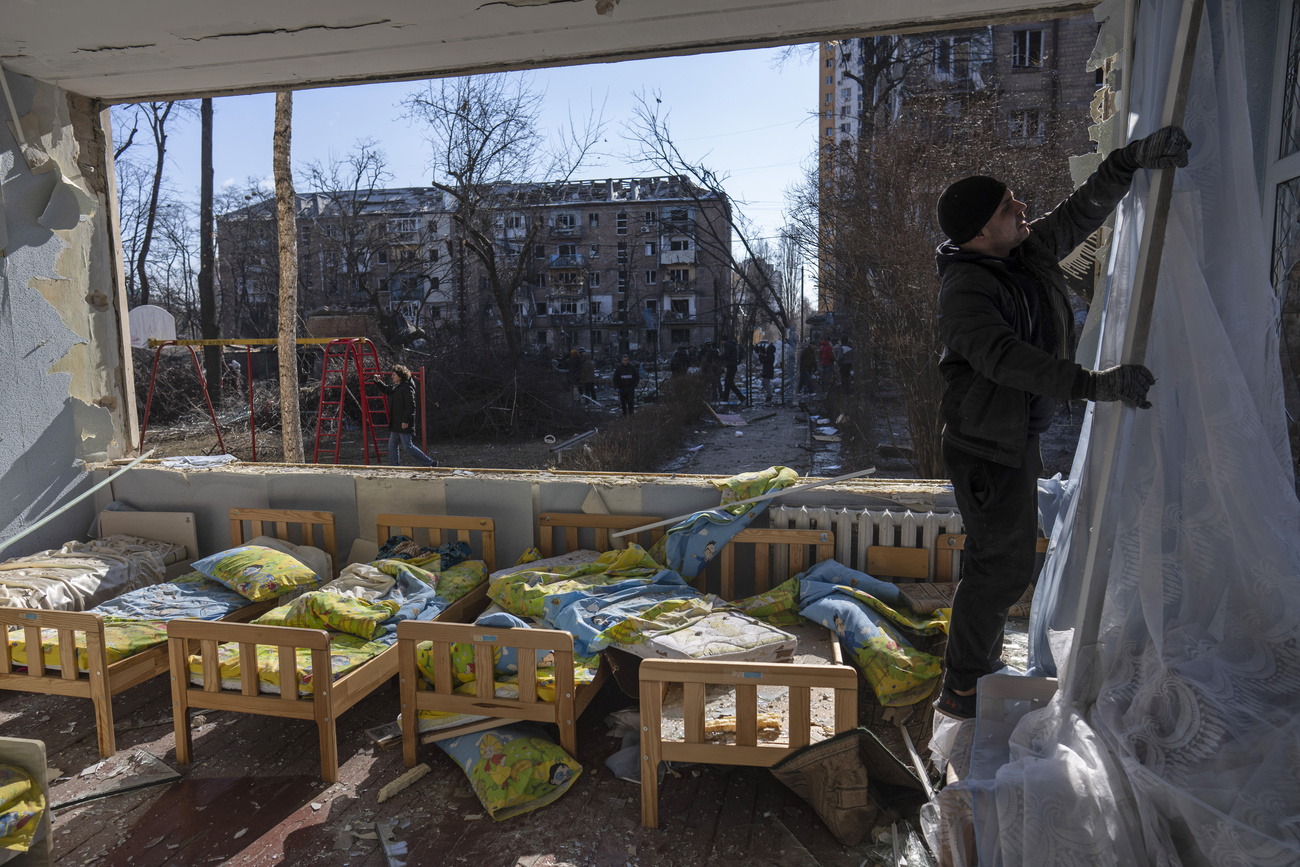
Swiss food giant Nestlé could confront a consumer boycott after Ukrainian government officials accused the company of being complicit in Russia’s "war crimes" in Ukraine. Boycott calls and parody memes shaming the company have spread like wildfire on social media this week.
Ukrainian President Volodymyr Zelensky ramped up the pressure even further on Saturday when he addressed an anti-war rally held in the Swiss capital Bern, at which Swiss President Ignazio Cassis was present.
The slogan of Nestlé, a Swiss company, is “good food, good life,” Zelensky said in a livestream address from Kyiv, Keystone-SDA reported. “Business in Russia works even though our children die and our cities are destroyed.”
+ Ukraine’s leader urges Swiss to freeze Russian assets
Many big brand names have pulled out of Russia on account of its invasion of Ukraine. On March 11, Nestlé outlined how it had restrictedExternal link its business dealings in the nation widely condemned for invading its neighbour. But the social media outcry gained momentum in the wake of a conversation between the prime minister of war-torn Ukraine and the company’s top executive.
“Paying taxes to the budget of a terrorist country means killing defenseless mothers and children,” Ukrainian Prime Minister Denys Shmyhal wrote on Twitter. On Thursday, Shmyhal said he had spoken to Nestlé CEO Mr. Mark Schneider about the side effects of staying in the Russian market but that unfortunately he had shown no understanding.
“Hope that Nestlé will change its mind soon,” he added. His comments received over 60,000 likes in the span of 24-hours.
Talked to @NestleExternal link CEO Mr. Mark Schneider about the side effect of staying in Russian market. Unfortunately, he shows no understanding. Paying taxes to the budget of a terrorist country means killing defenseless children&mothers. Hope that Nestle will change its mind soon.
— Denys Shmyhal (@Denys_Shmyhal) March 17, 2022External link
The multinational has declined to shed more light on that interaction. A spokeswoman for the Vevey-based group told Keystone-SDA the company considers “conversations with government authorities to be private.”
“As an employer, we are responsible for our more than 7,000 employees in Russia,” the spokeswoman noted.
Twitter users have rallied around the hashtag “#boycottnestle”. Some of the images targeting Nestlé hijacked the company’s logo, depicting a bird wearing a Nazi armband with a “Z” as a swastika watching over Nestle’s emblematic nest. The Z is the sign worn by Russian troops participating in the invasion of Ukraine.
Other distorted marketing images showed Nestlé as an “official sponsor” of the Russian invasion, against a backdrop of photos of bombed-out hospitals.
Ukraine’s Foreign Minister Dymtro Kuleba has also chimed in on the issue. “By refusing to stop doing business in Russia, Nestlé is allowing Russia’s war of aggression in Europe to continue,” he wrote on Twitter. “The long-term damage to the company’s reputation is commensurate with the scale of Russian war crimes in Ukraine (huge).”
That post was accompanied by a meme juxtaposing an image of a happy child about to eat a healthy meal with an image of the bloody corpse of a child seemingly buried in rubble. The text over them read “Nestle’s positioning: Good Food, Good Life,” versus “Nestle’s position: Sponsor of Putin’s war.”
On Wednesday, U.S. President Joe Biden called his Russian counterpart a “war criminal” after Russian forces bombed a theatre were sheltering in the besieged Ukrainian city of Mariupol. The same day, Switzerland expanded its list of sanctions against individuals and entities over Russia’s invasion of Ukraine.

Nestlé navigates tricky territory
Nestlé has suspended shipments of certain foods to Russia, including Nespresso. But it continues to provide basic necessities such as baby food and cereals. In 2021, Nestlé generated CHF1.7 billion ($1.8 billion) of revenue in Russia, or about 2% of the total, according to Bloomberg. On the stock market, investors seem relatively indifferent to these controversies.
In remarks sent to swissinfo.ch on Saturday, a Nestle spokesperson said “there are absolutely no commercial reasons to stay in Russia. This is about the supply of essential food products and meeting the basic needs of the local people.”
She also highlighted efforts to support people in Ukraine. “We will continue to do the utmost to support the Ukrainian people in the country—including in cities like Kharkiv where we try to provide supply every day—and abroad,” the spokeswoman said.
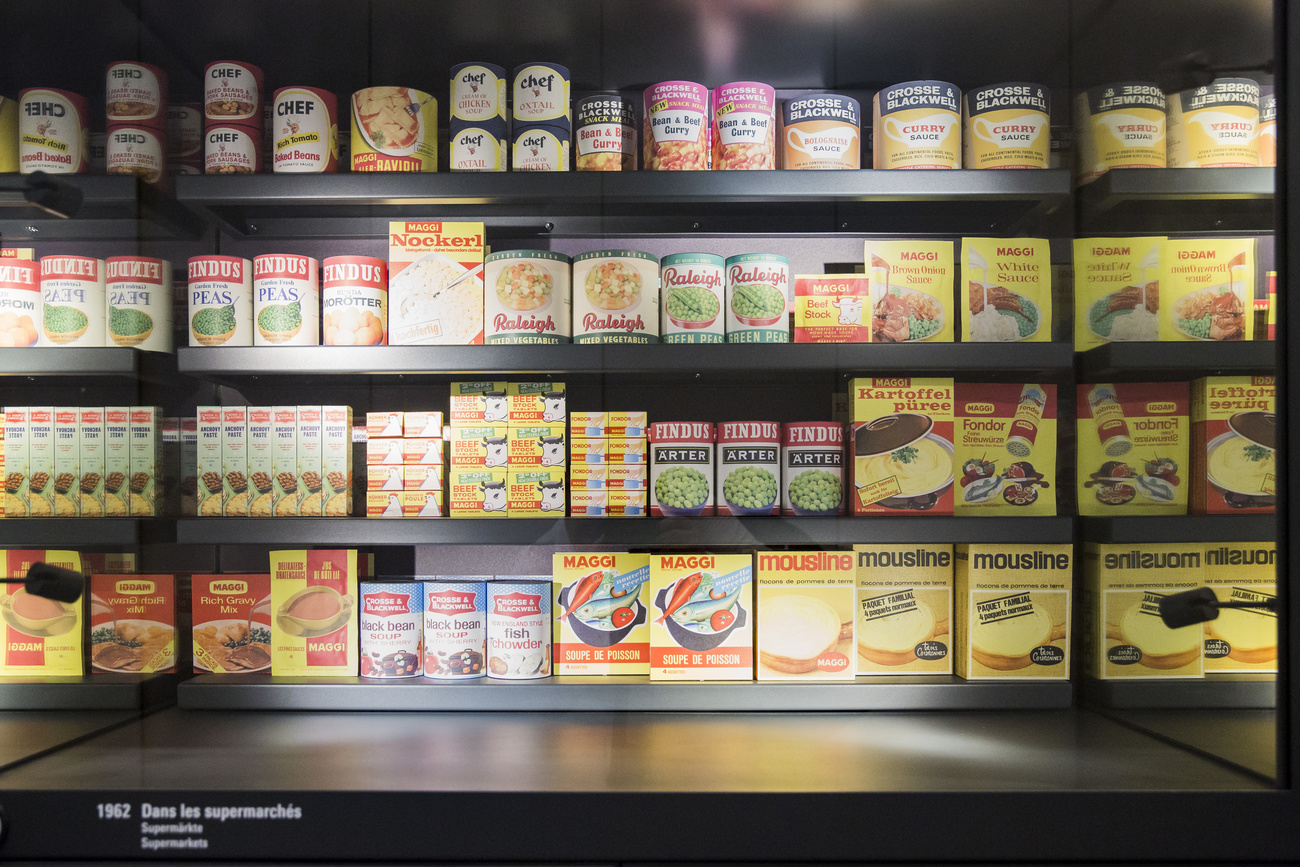
Nestlé issued a follow-up statement after the company was named and shamed by the Ukrainian president in a live streaming speech delivered to crowds gathered at a peace rally in Bern on Saturday. The multinational stressed its commitment to upholding sanctions and rejected the notion that it is still doing business “as usual” in Russia.
The company also noted it has taken “unprecedented steps” to scale back its operations in Russia, including halting all imports and exports with the exception of essential food items.
“We fully comply with all sanctions, be they American, European or Swiss – as we always do,” the Nestlé spokesperson said.
There have been more than 1,500 civilian deaths in Ukraine since February 24, when Russia launched a full-scale attack on its neighbour, according to the Global Conflict Tracker managed by the New York-based Council on Foreign Relations.External link Over 3.2 million refugees have fled Ukraine in the same period. Switzerland has already registered nearly 4,000 Ukrainian refugees and has set up a new online application process to cope with the high demand.
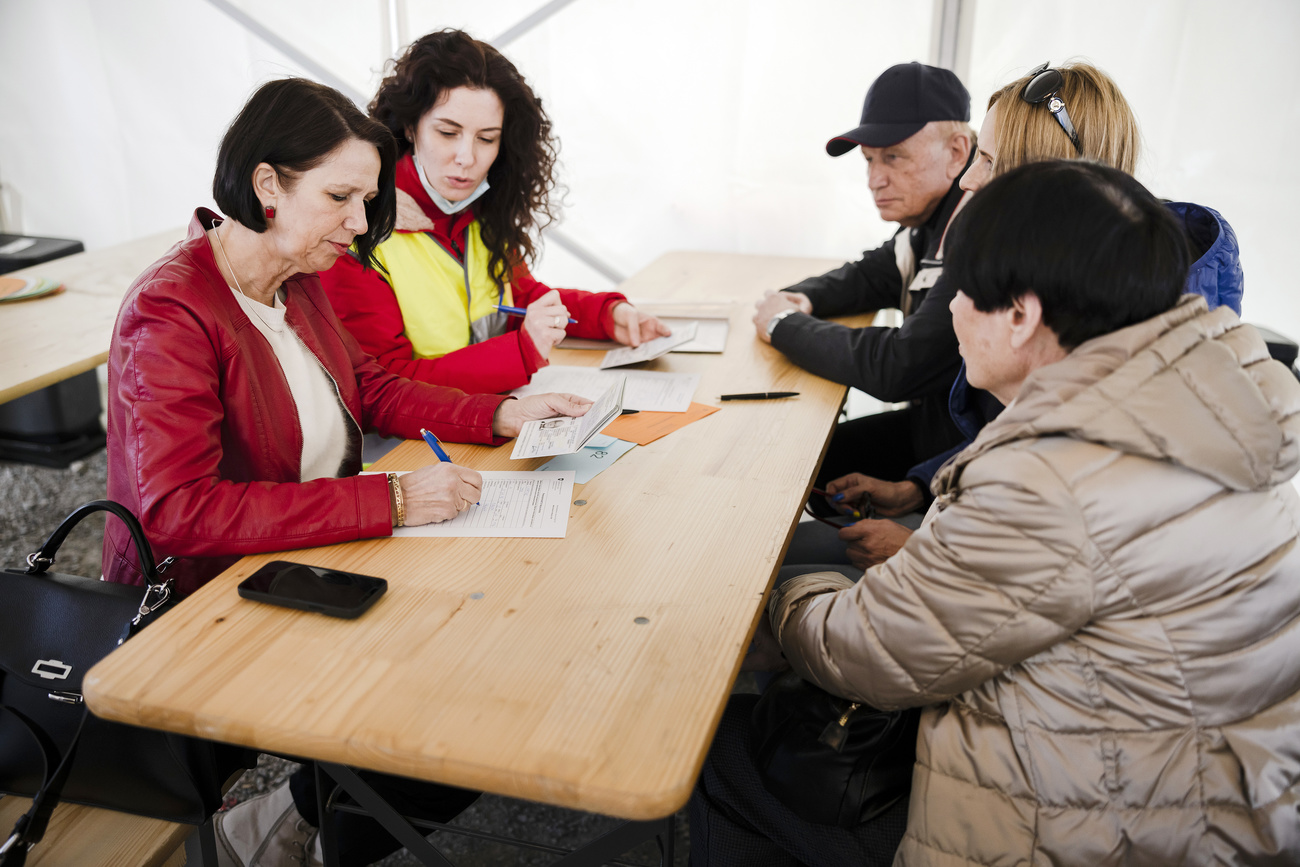
More
Switzerland plans online registration for Ukrainian refugees

In compliance with the JTI standards
More: SWI swissinfo.ch certified by the Journalism Trust Initiative











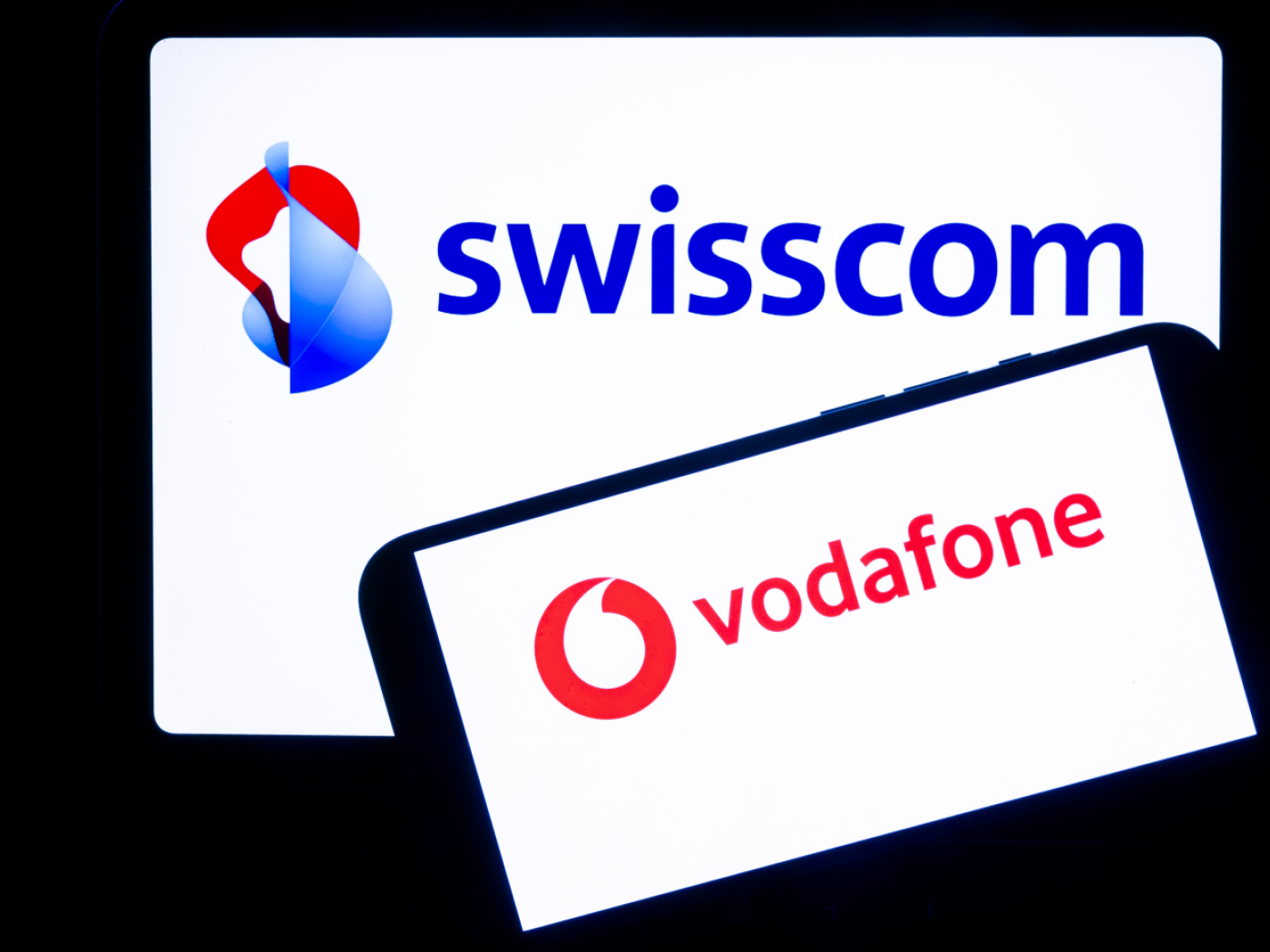

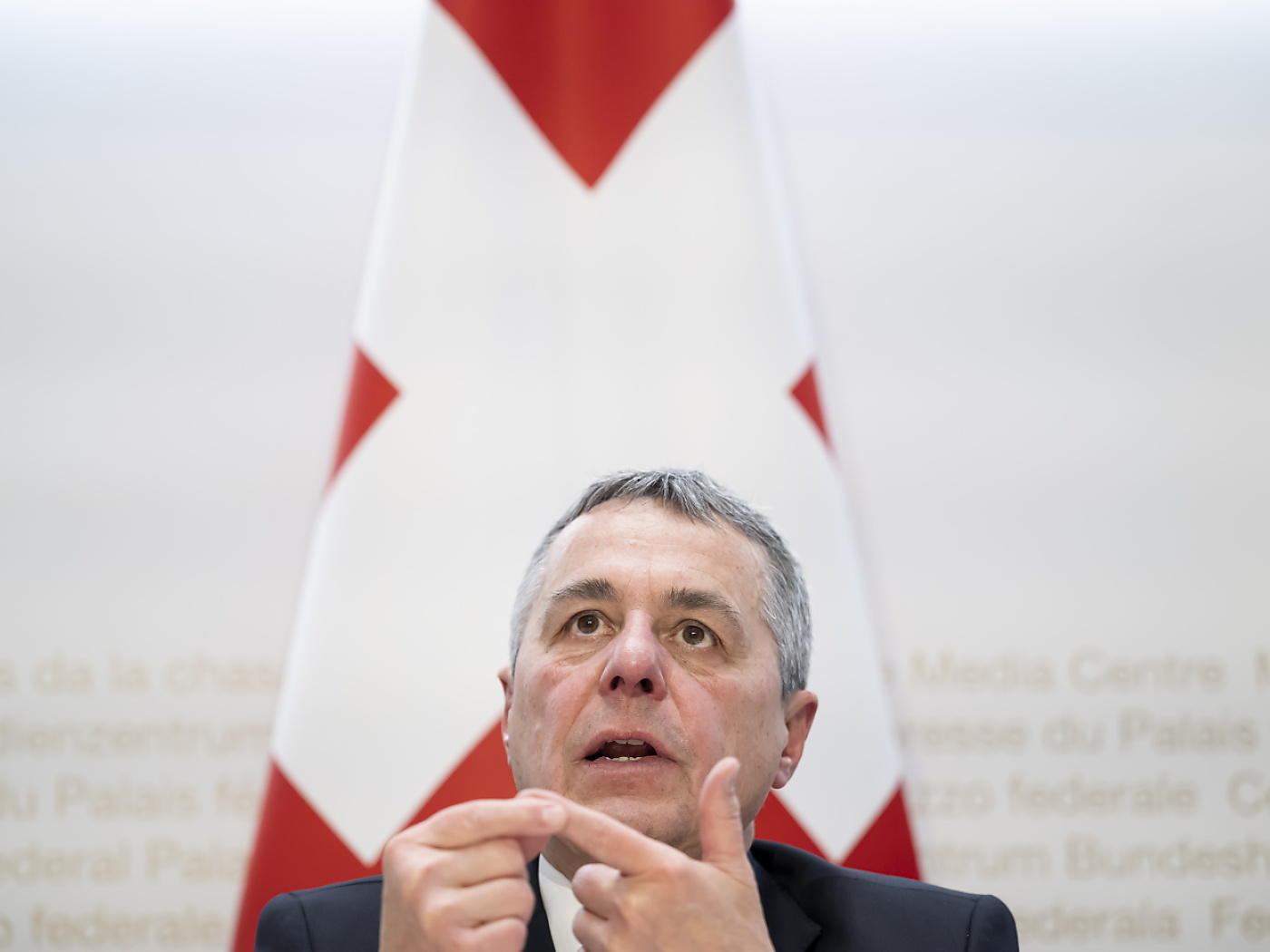


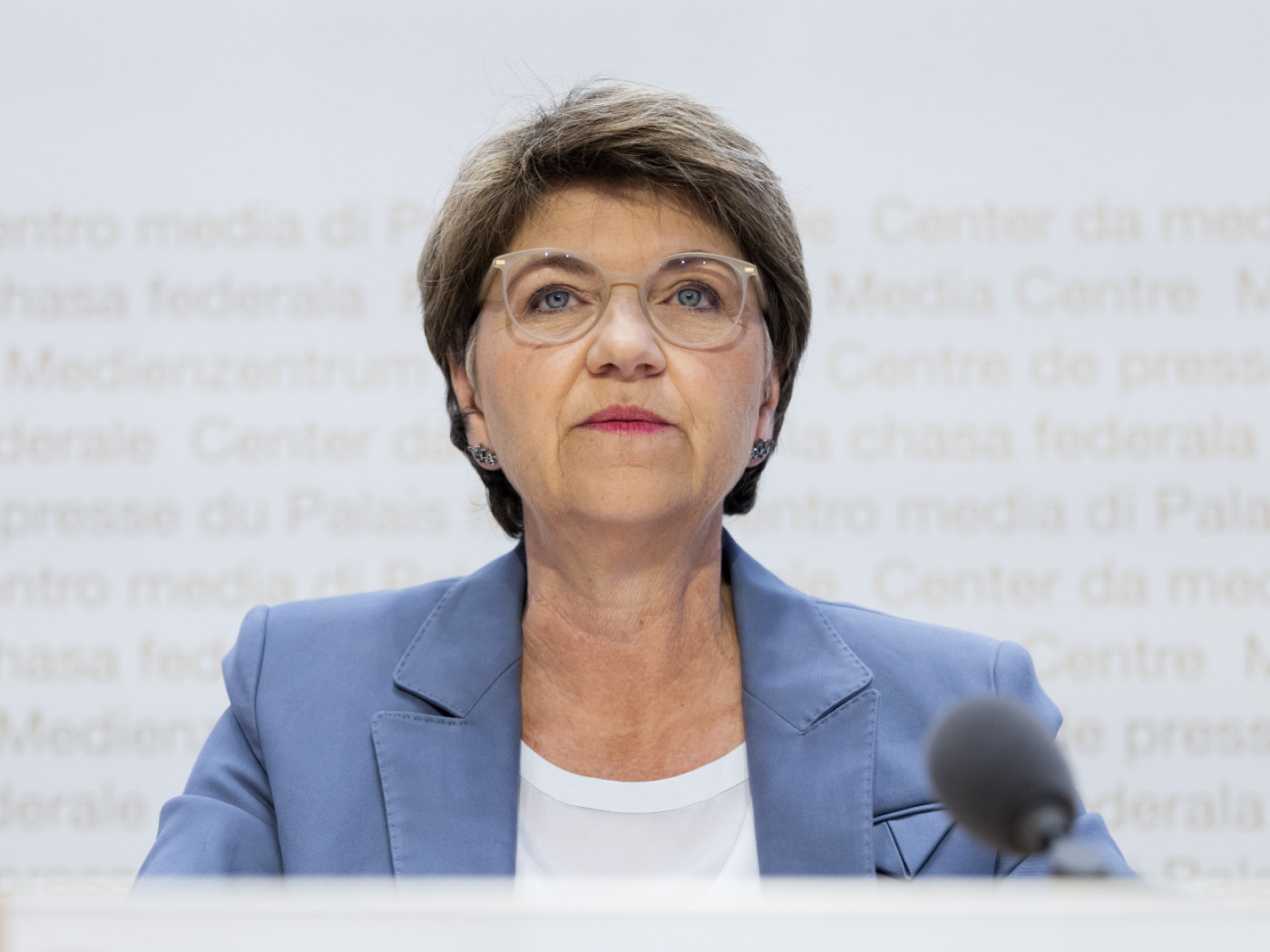

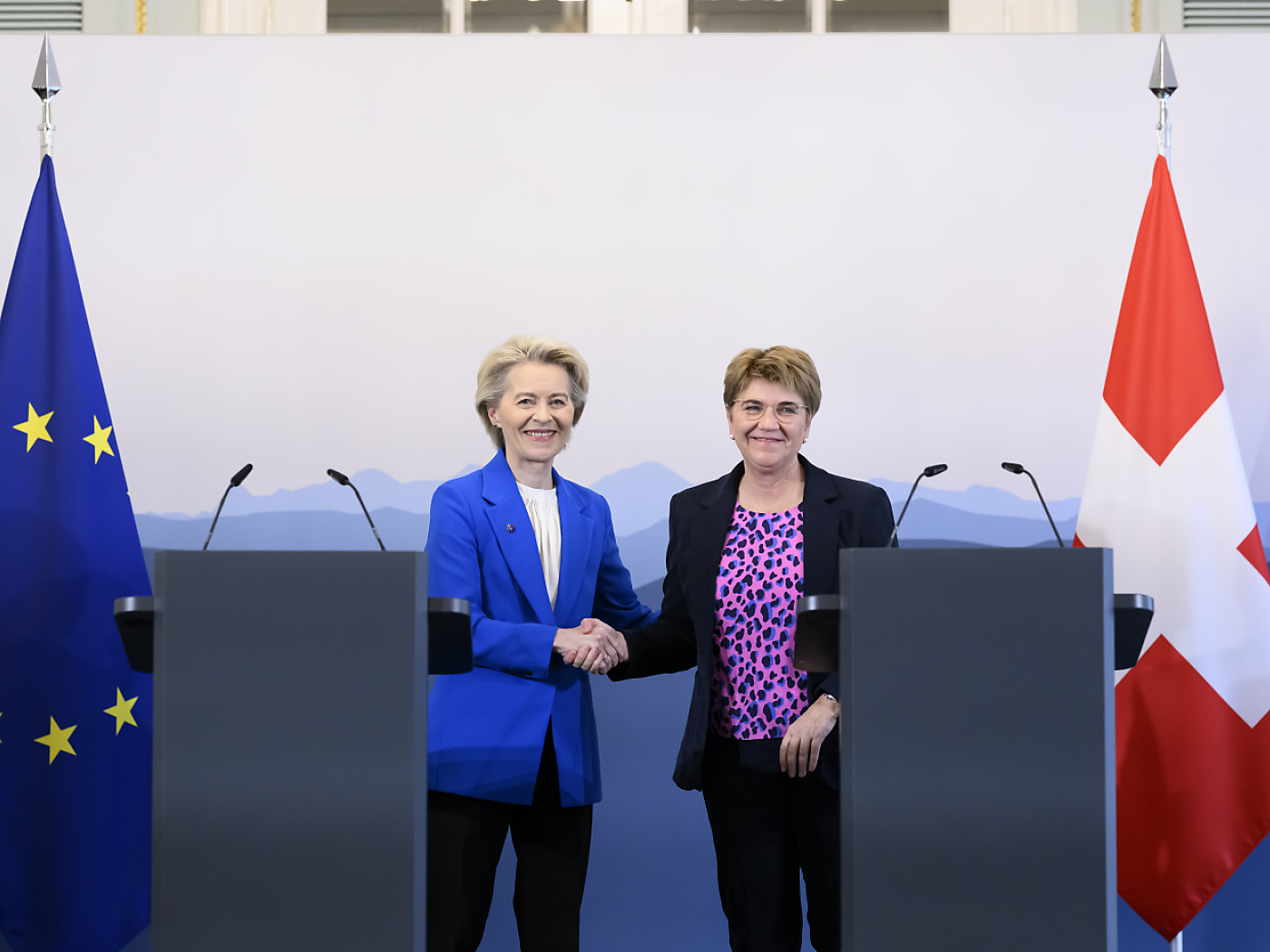

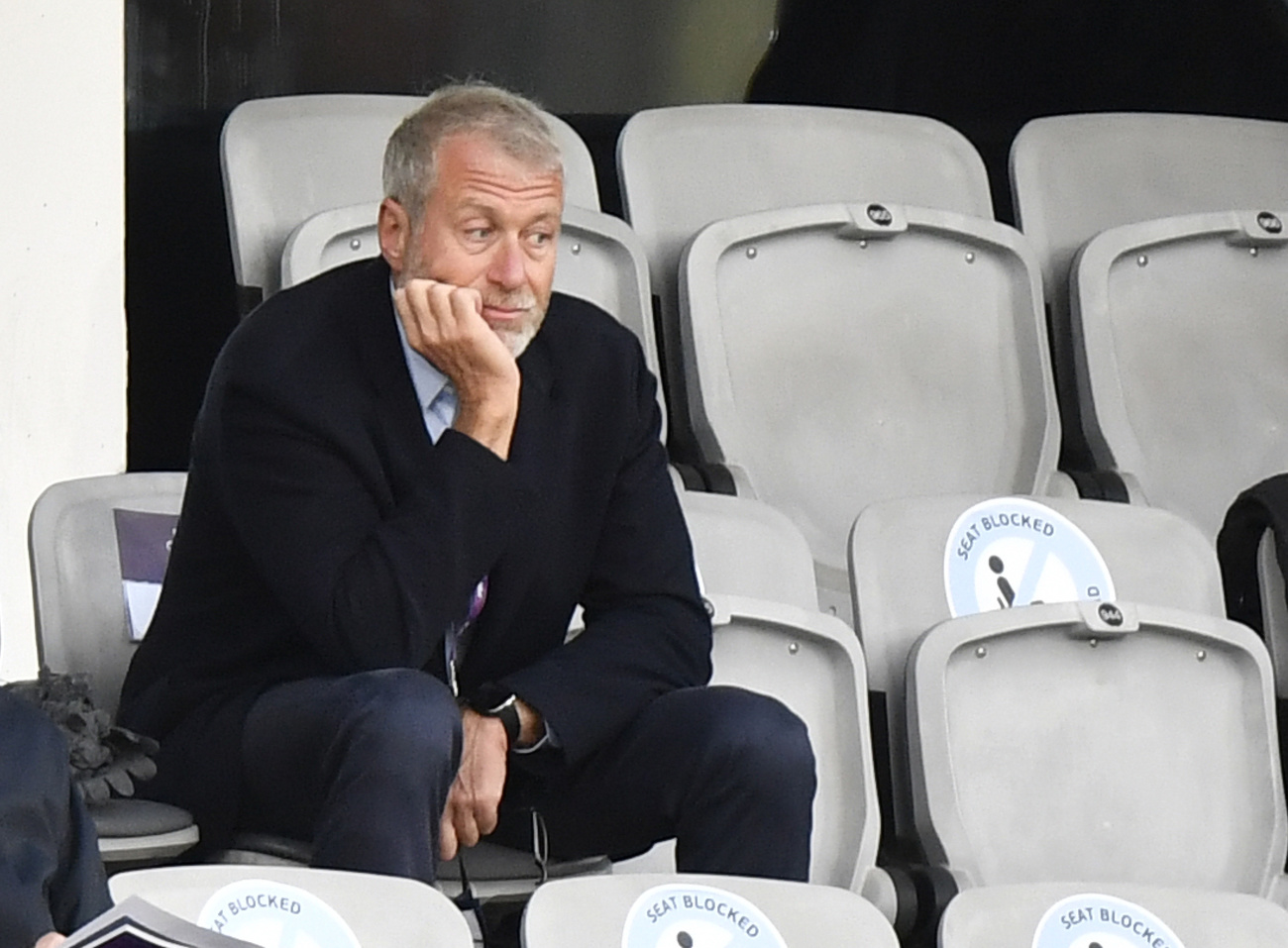
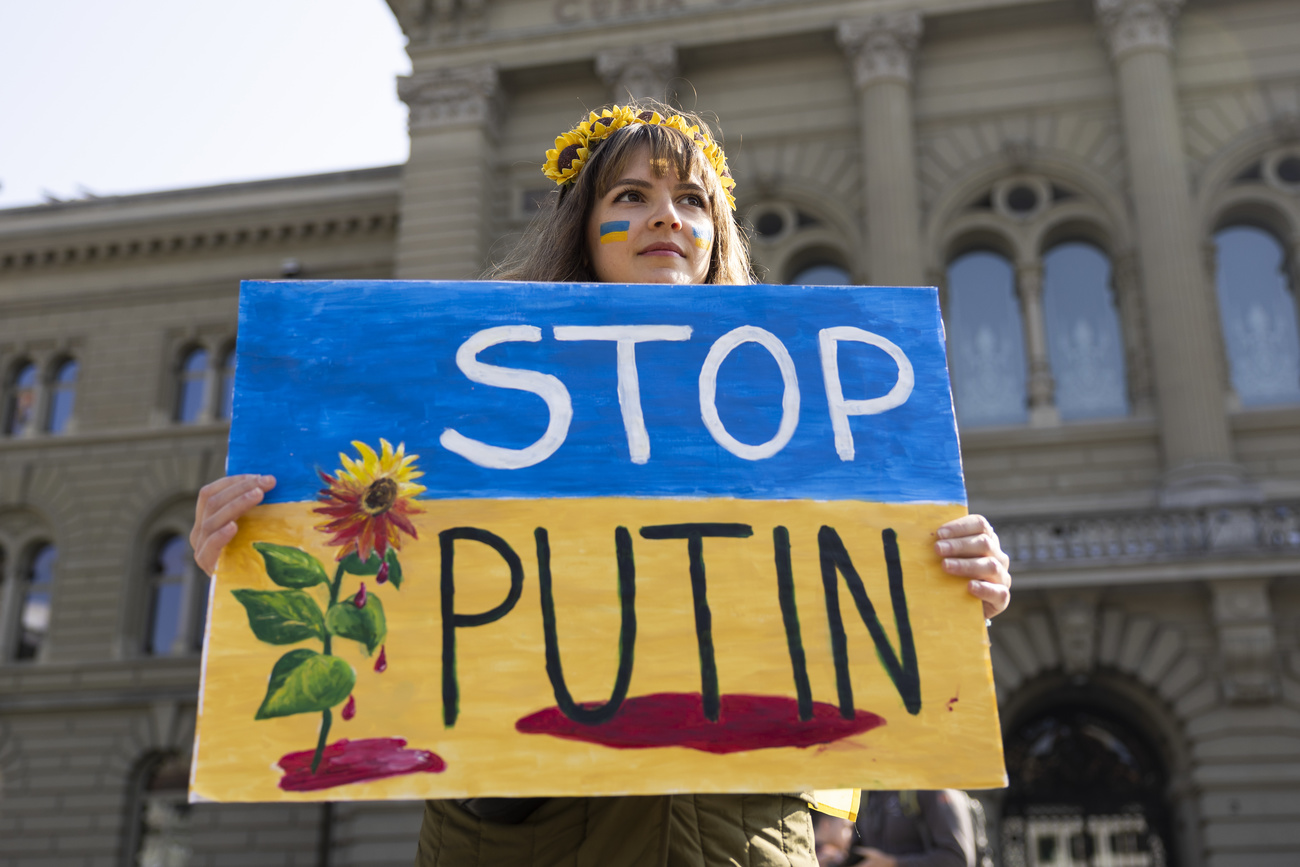
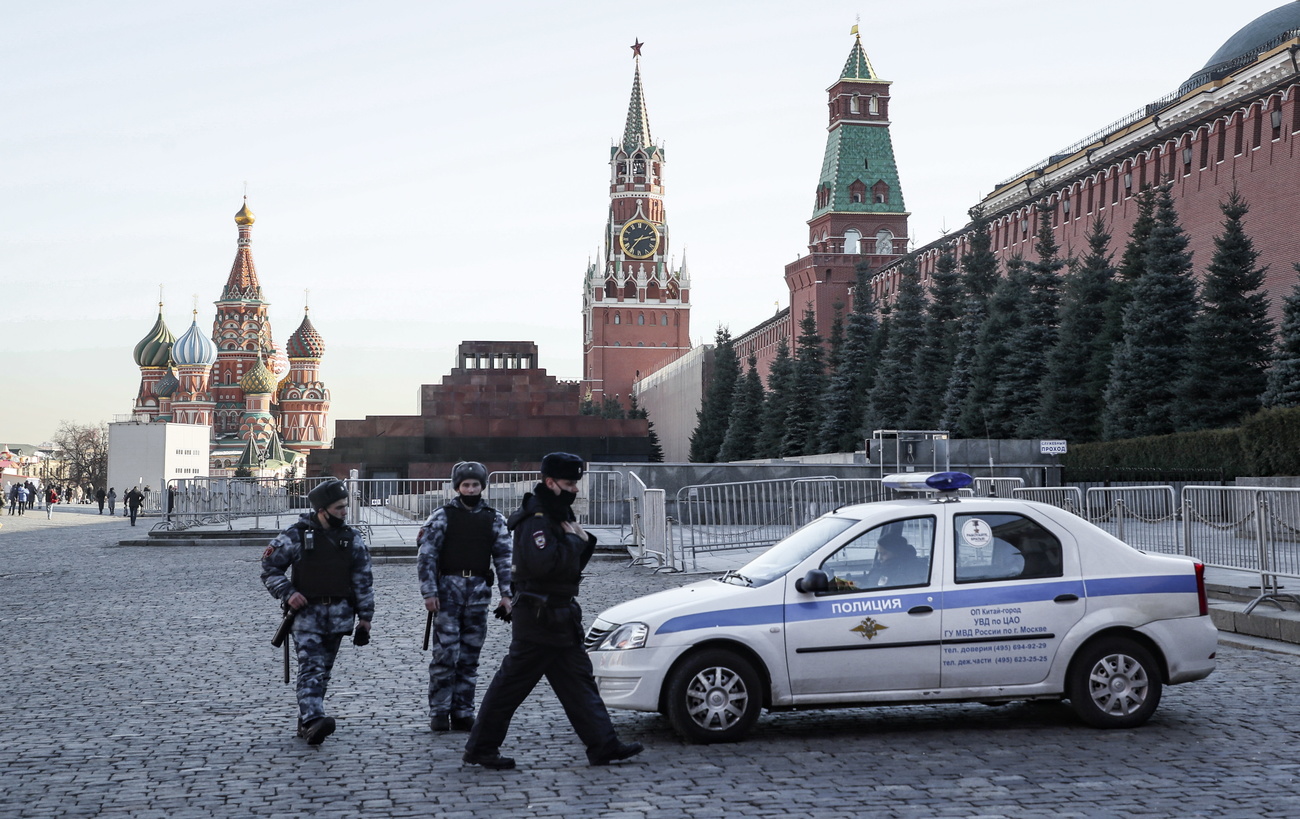
You can find an overview of ongoing debates with our journalists here . Please join us!
If you want to start a conversation about a topic raised in this article or want to report factual errors, email us at english@swissinfo.ch.